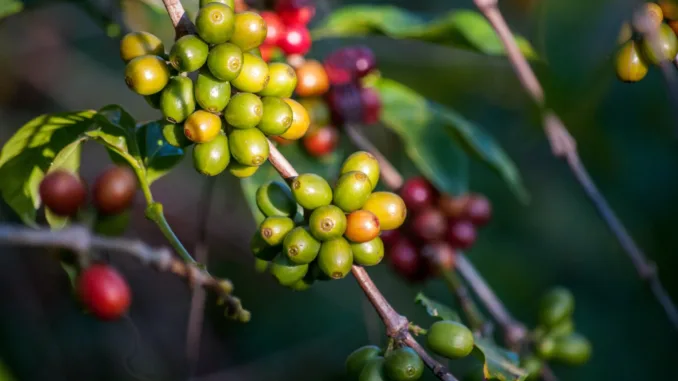
Within the second half of this text, we uncover how the Espresso Barometer makes an attempt to bridge the hole between discourse and motion, envisioning a sustainable future for the espresso sector.
BY VASILEIA FANARIOTI
SENIOR ONLINE CORRESPONDENT
Featured photograph courtesy of Rodrigo Flores through Unsplash
As we embark on the second a part of our dialog with Ethos Agriculture workforce members, Frederik de Vries and Sjoerd Panhuysen (take a look at half one right here), our focus turns to the center of the matter—the 2023 Espresso Barometer. The Espresso Barometer, initiated in 2006, emerged as a response to the necessity for transparency in corporations’ guarantees of sustainable espresso procurement, and has developed over time.
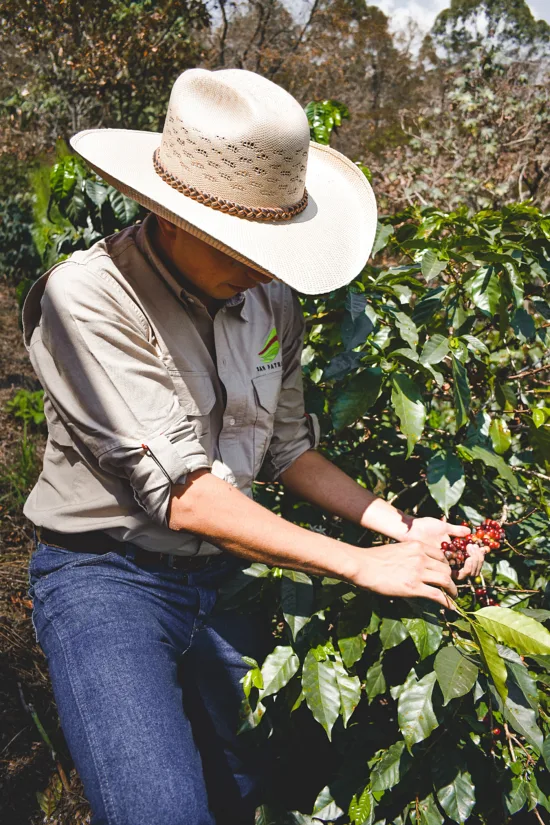
Navigating Trade Challenges
The newest Espresso Barometer emphasizes the multifaceted challenges confronting the business. A serious problem lies within the focus of manufacturing, the place 85% of the market is dominated by a choose group of nations, and the highest 11 roasting corporations account for 35% of annual green-coffee roasting. Moreover, many espresso farmers battle to generate enough revenue, hindering their capacity to realize a residing wage.
The urgency of adapting espresso manufacturing to local weather change is impeded by monetary constraints exacerbated by revenue challenges. Moreover, there’s a notable shift within the discourse round sustainability, transitioning from voluntary initiatives to obligatory laws, exemplified by the current EU Deforestation Regulation. Ethos Agriculture sees its function as a bridge, addressing these challenges by means of analysis, benchmarking, and additional exploration of the problems.
The report additionally brings to mild collaboration challenges inside the sector. Ethos Agriculture notes an absence of vital civil society organizations holding corporations accountable. ”The development of NGOs collaborating with the personal sector on sustainability packages typically limits their capacity to be vital,” Sjoerd identified throughout our dialog. The Espresso Barometer report goals to fill this hole by offering an unbiased evaluation; it will be certain that vital questions are requested, and corporations are held accountable for his or her actions.
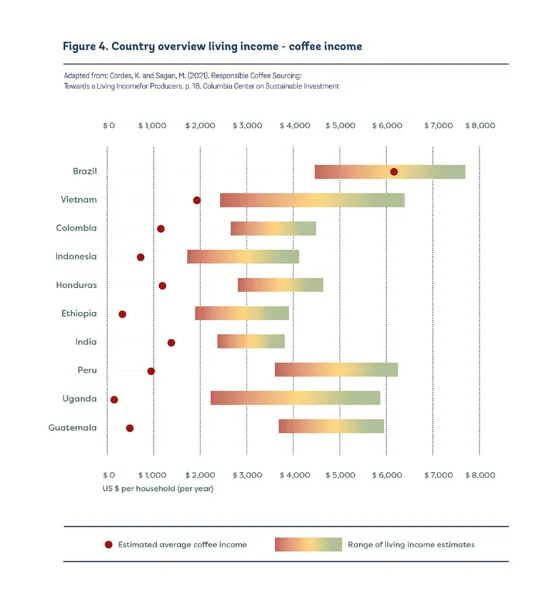
Bridging the Hole Between Discourse and Motion
As we mentioned these challenges throughout our dialog, transparency within the public sector grew to become a focus. Ethos Agriculture raised issues about corporations hesitating to include the precise prices, together with social and environmental prices, into the costs they’re keen to pay for espresso. This reluctance is obvious within the low procurement of licensed espresso and a hesitancy to experiment with pricing aligned with residing revenue benchmark research.
”Regardless of the proliferation of benchmark research, there’s a noticeable hole in corporations taking tangible actions. The information exists, however the essential translation into actionable help for farmers stays elusive as a consequence of an absence of willingness amongst corporations to show insights into concrete monetary commitments,” Frederik stated.
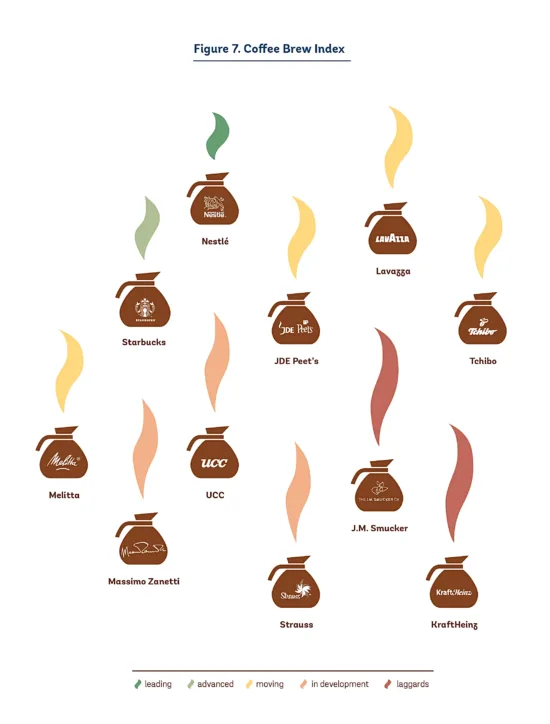
The interview additionally touched on local weather change, regenerative agriculture, and agroforestry practices inside the espresso sector. Whereas the Ethos workforce acknowledged urgency and dedication from some corporations, they talked about there’s a concern in regards to the lack of clear insurance policies and actions to deal with climate-related challenges inside provide chains.
The Espresso Brew Index is one other key side of the 2023 Espresso Barometer. The index emerged as a brand new instrument to offer insights into which corporations are implementing strong sustainability insurance policies. Challenges in transparency have been highlighted, notably the shortage of complete reporting by corporations on sustainability practices, premiums, and traceability to the farm degree.
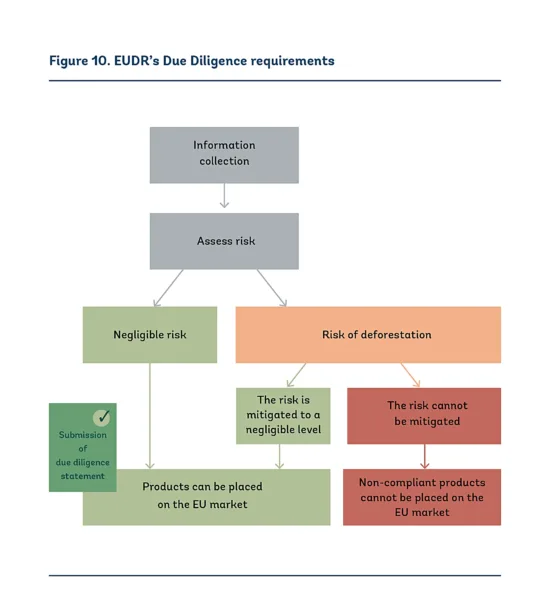
Reflections and Future Initiatives
The interview concluded with insights into Ethos Agriculture’s ongoing and upcoming initiatives. The Espresso Barometer, carried out each few years, was emphasised as essential for recording discussions transparently. The challenges posed by the transition from voluntary commitments to obligatory frameworks have been mentioned. They stated there was an absence of preparedness amongst main entities within the espresso business for brand new laws and laws, such because the aforementioned EU Deforestation Regulation.
Frederik and Sjoerd shared particulars about their ongoing tasks, which embody collaboration with the US African Improvement Basis to help espresso cooperatives in East Africa. The Espresso Brew Index additionally is about to have a second version, probably involving extra corporations and merchants.
The 2023 Espresso Barometer report is accessible to obtain without spending a dime.
ABOUT THE AUTHOR
Vasileia Fanarioti (she/her) is a senior on-line correspondent for Barista Journal and a contract copywriter and editor with a main give attention to the espresso area of interest. She has additionally been a volunteer copywriter for the I’M NOT A BARISTA NPO, offering content material to assist educate folks about baristas and their work. You may observe her adventures at thewanderingbean.web.
Subscribe and Extra!

Out now: It’s the December 2023 + January 2024 problem! Learn it without spending a dime with our digital version. And for greater than three years’ value of points, go to our digital version archives right here.
You may order a tough copy of the journal by means of our on-line retailer right here, or begin a subscription for one yr or two.

